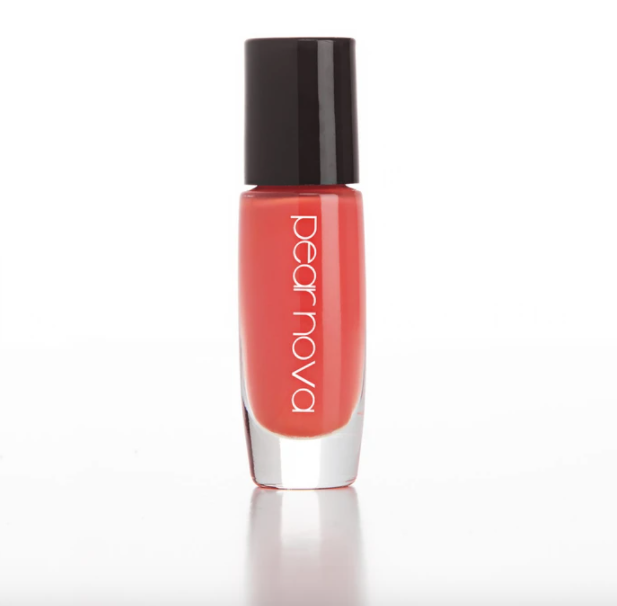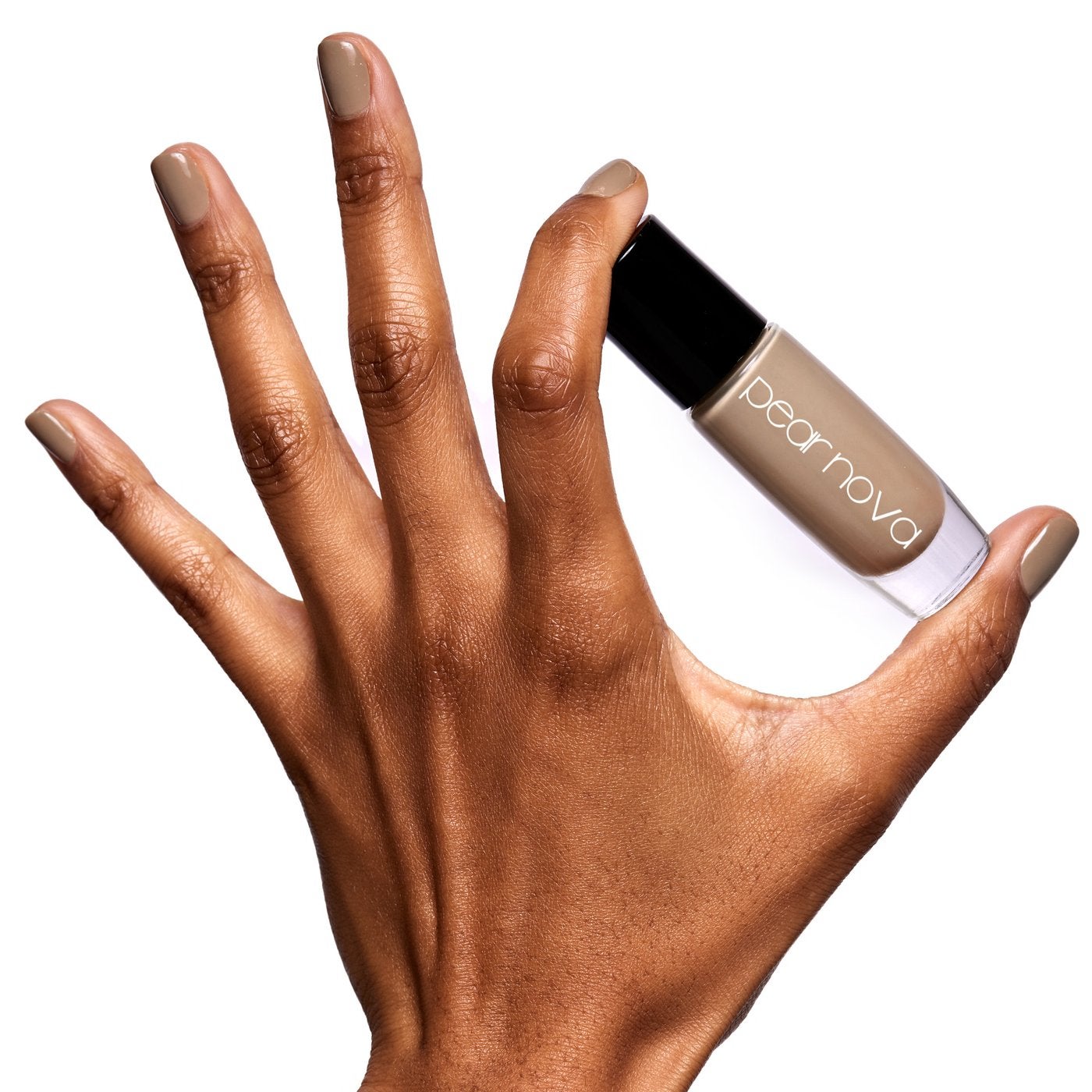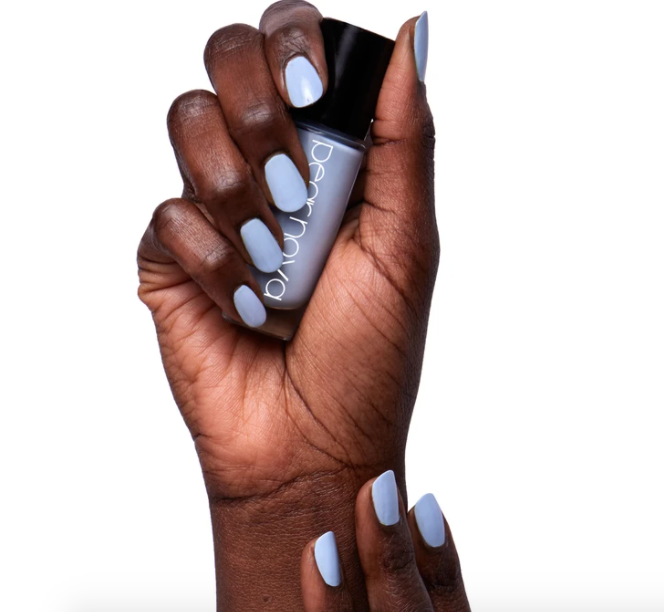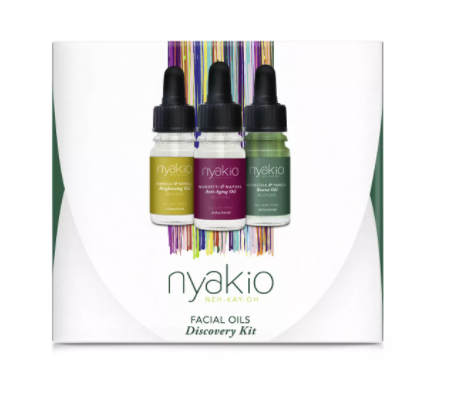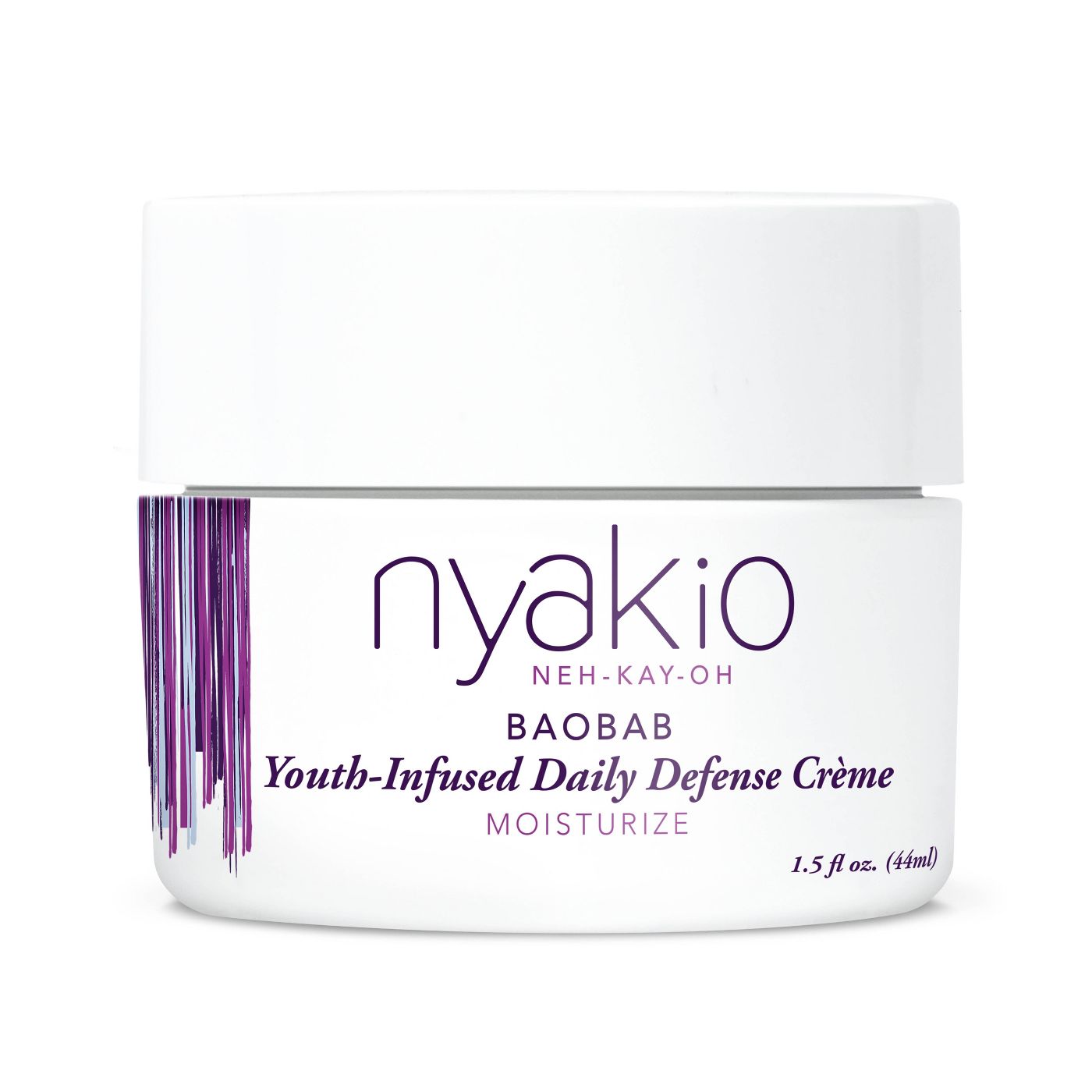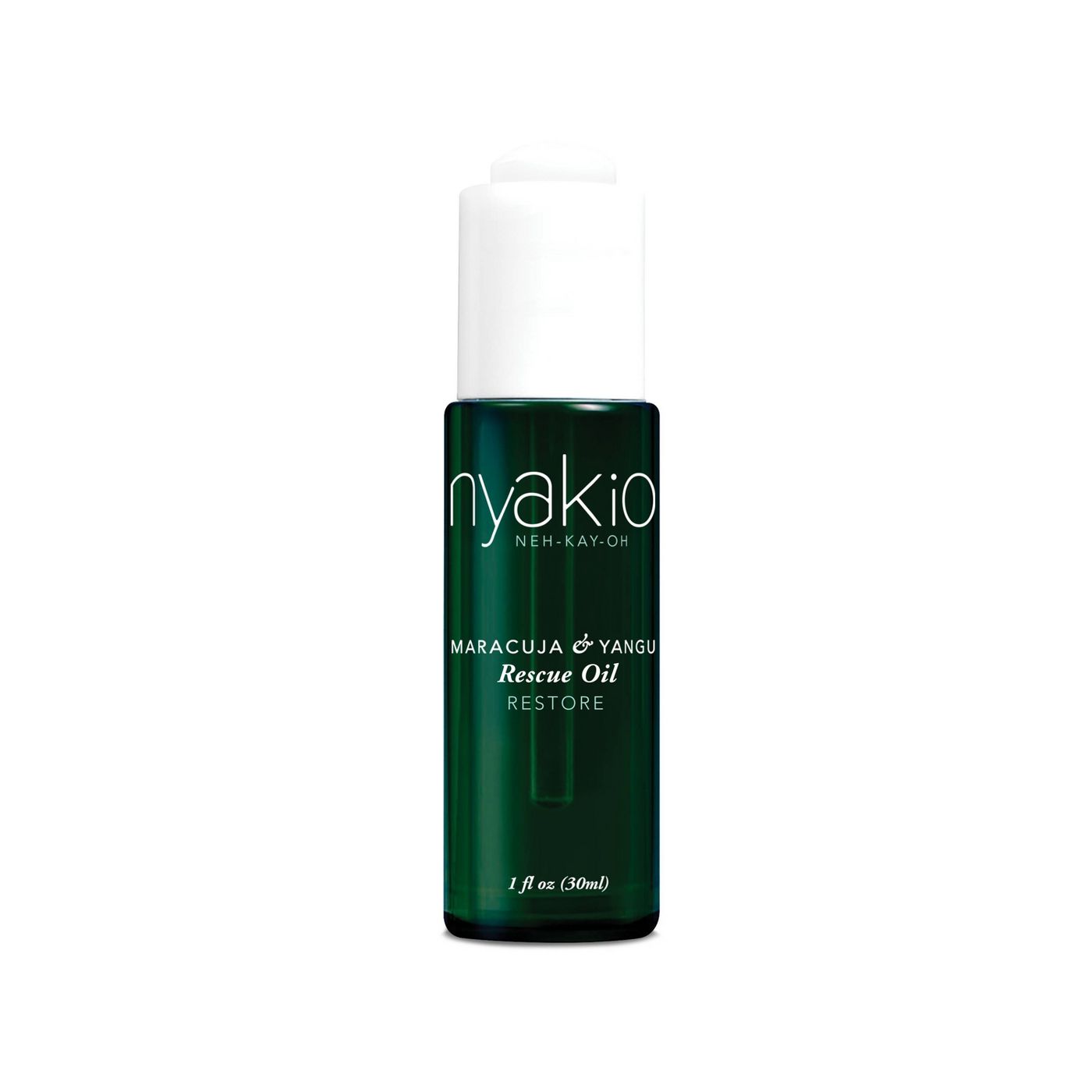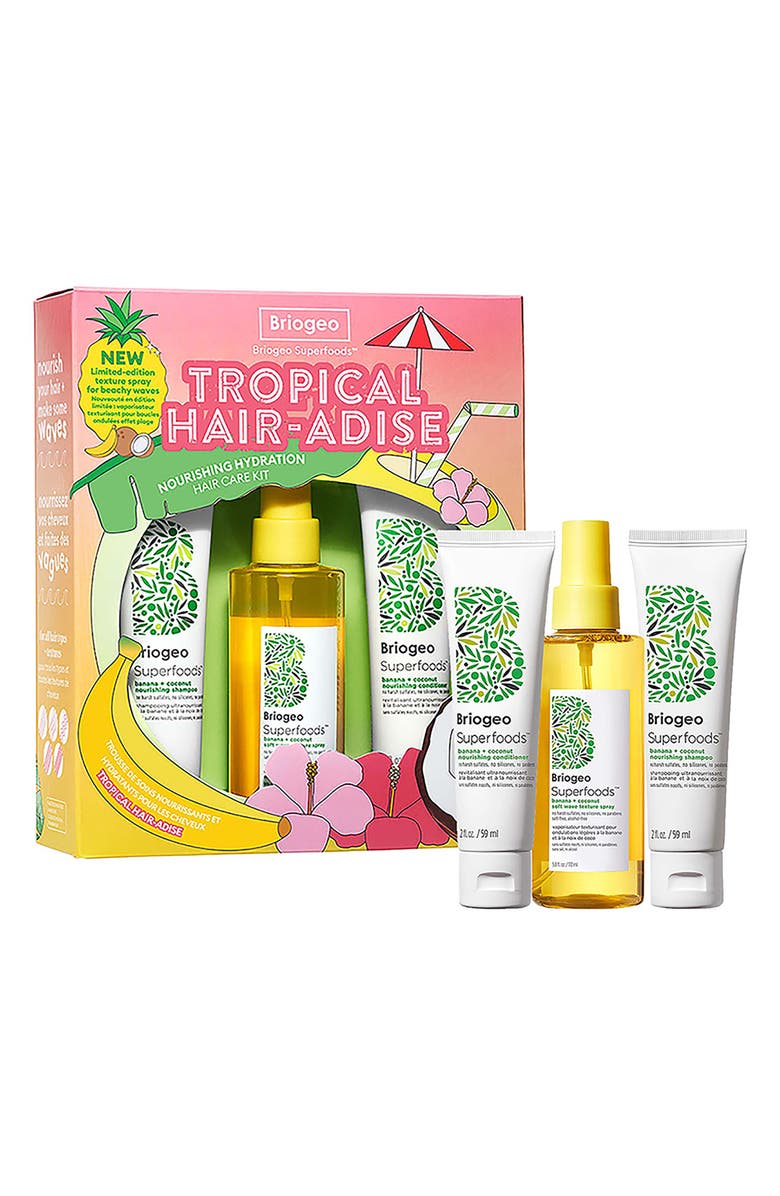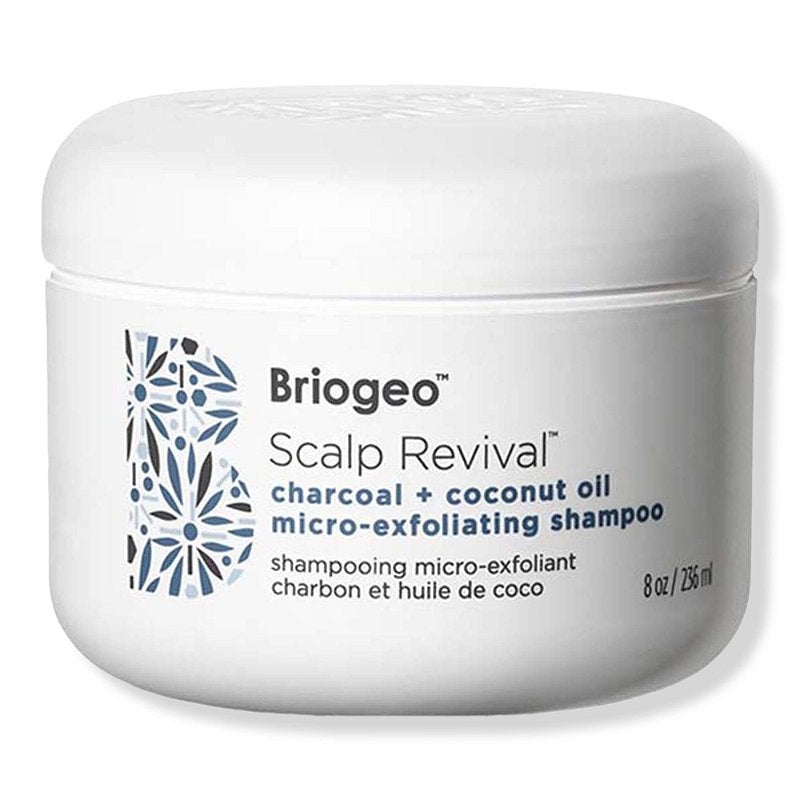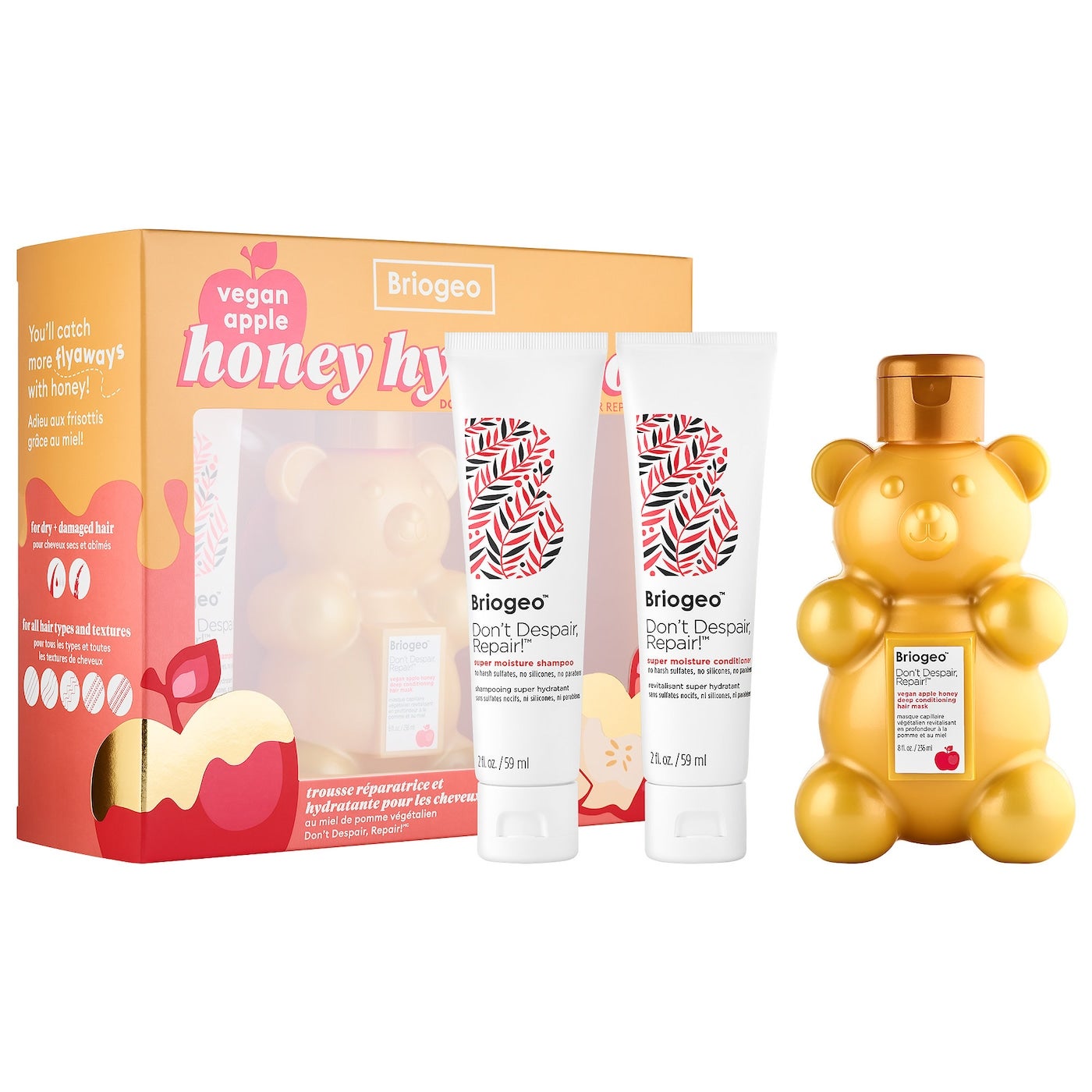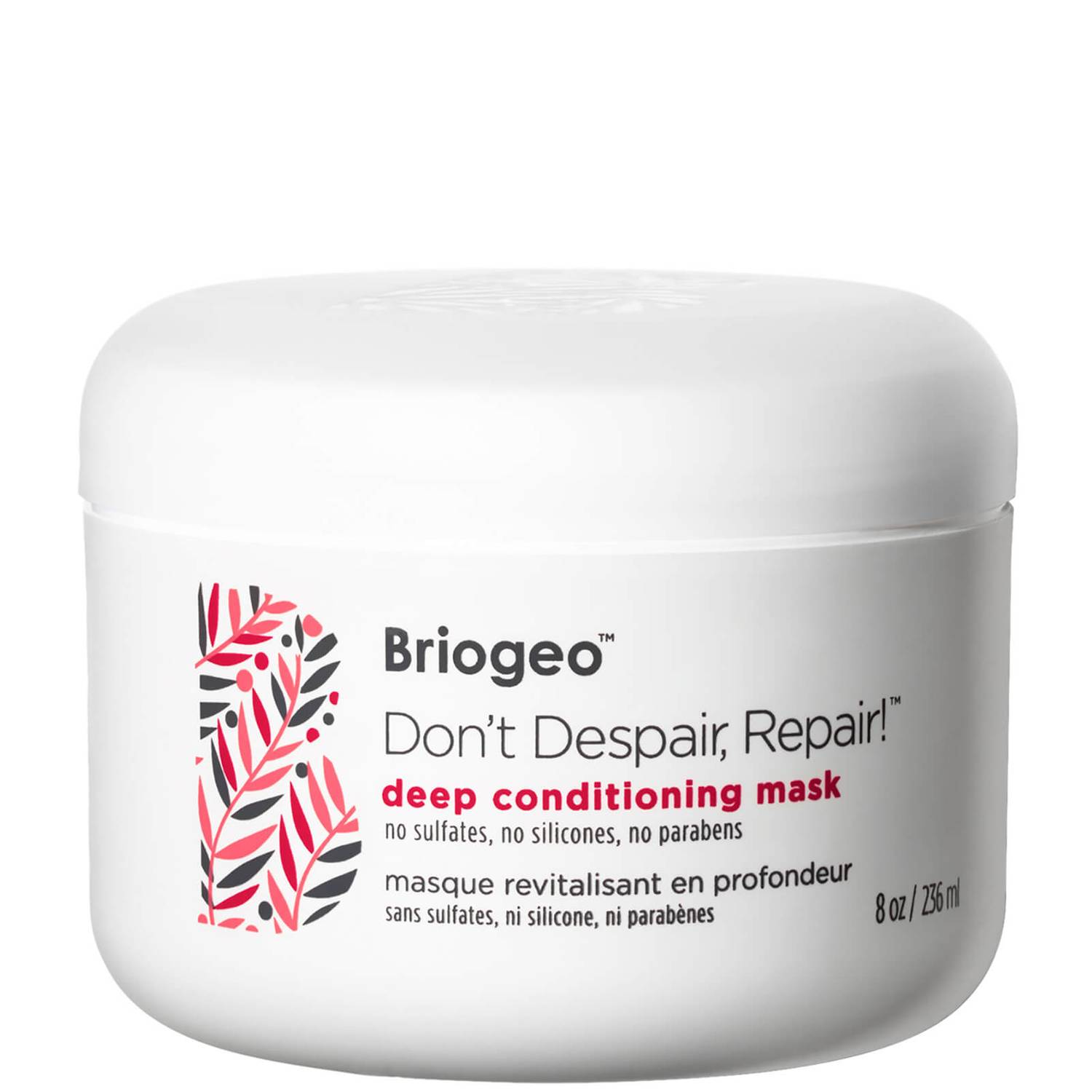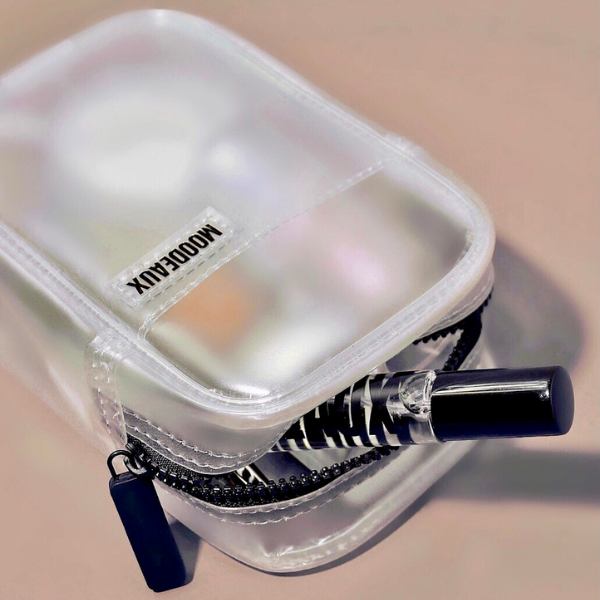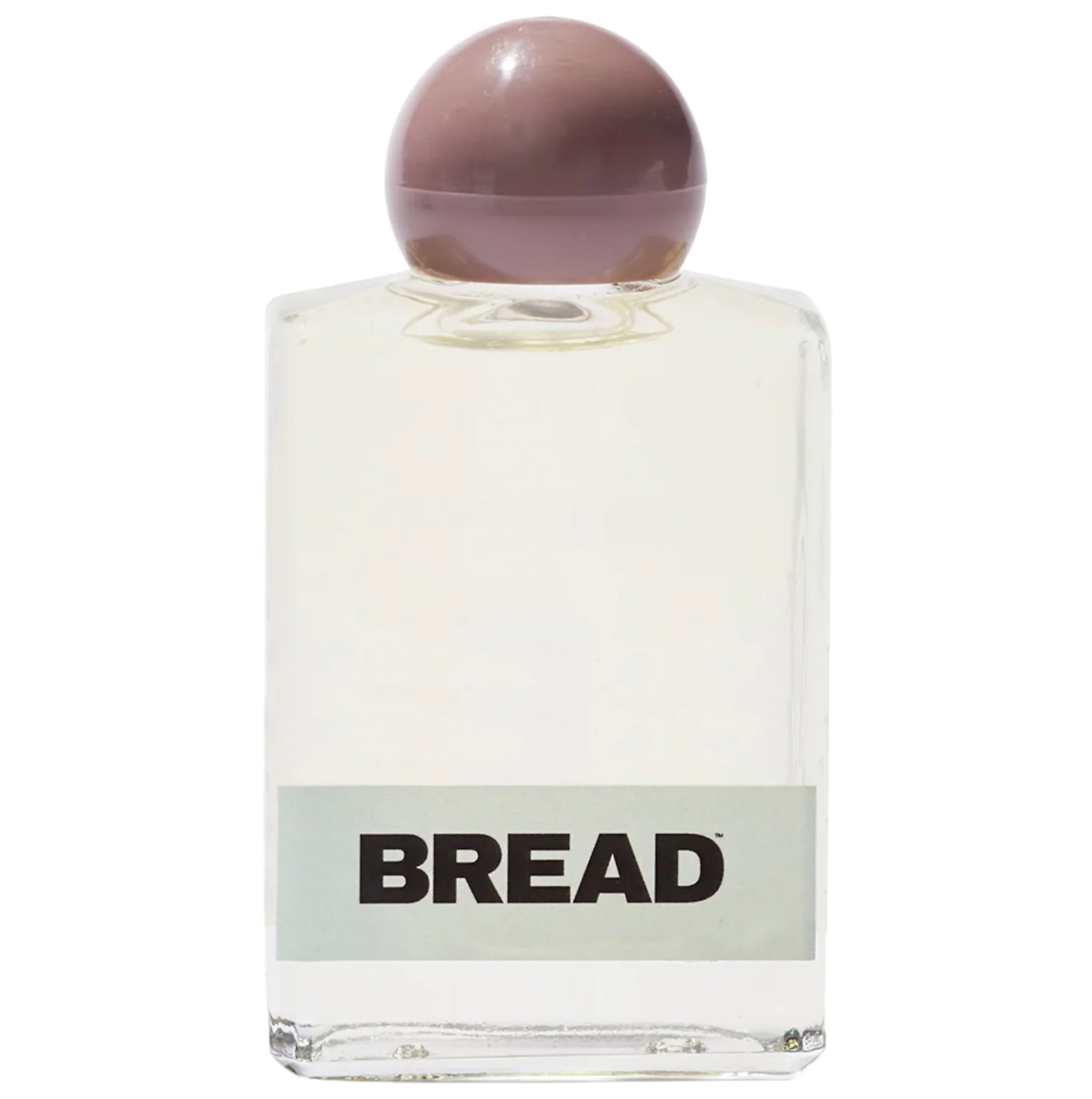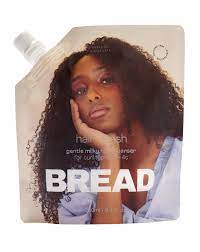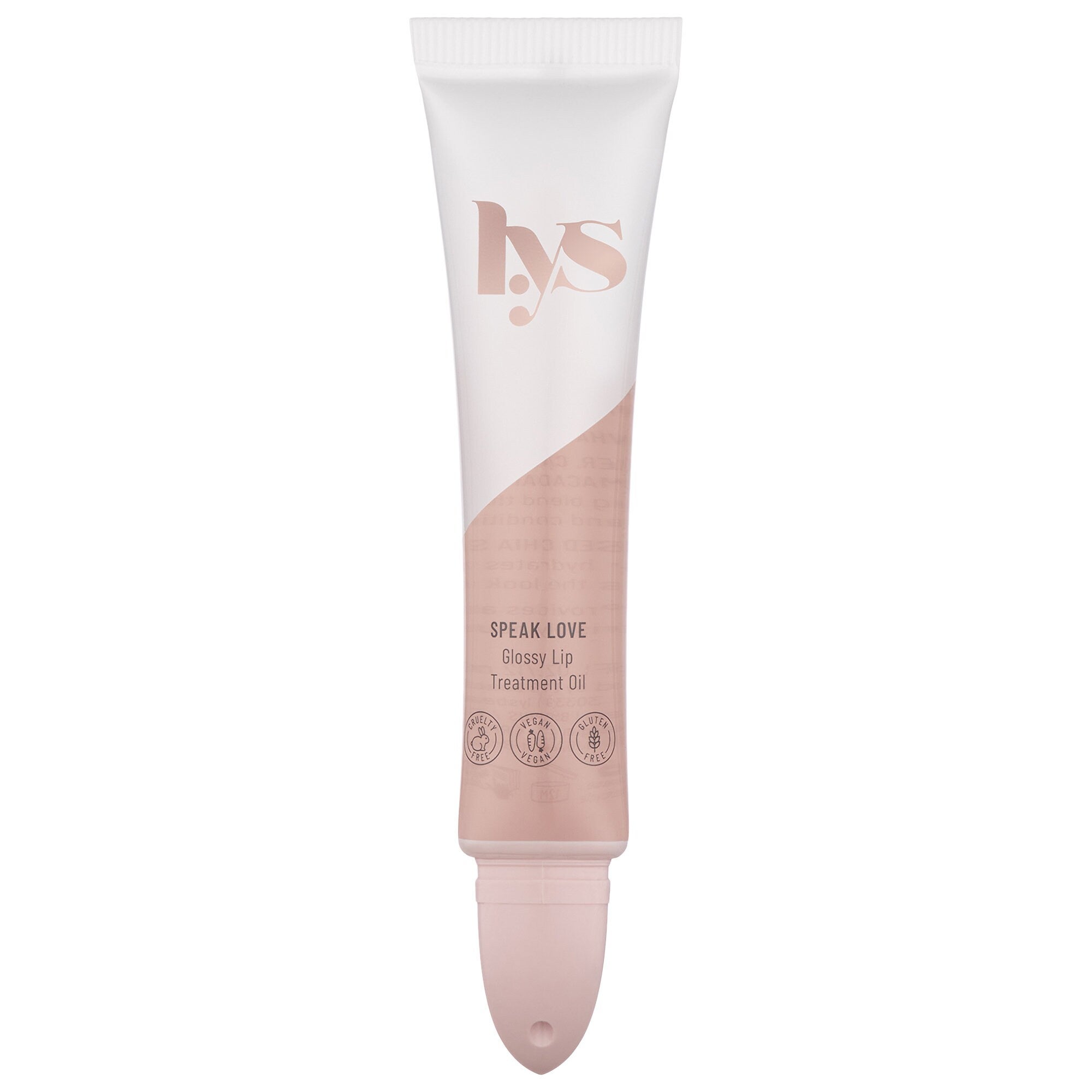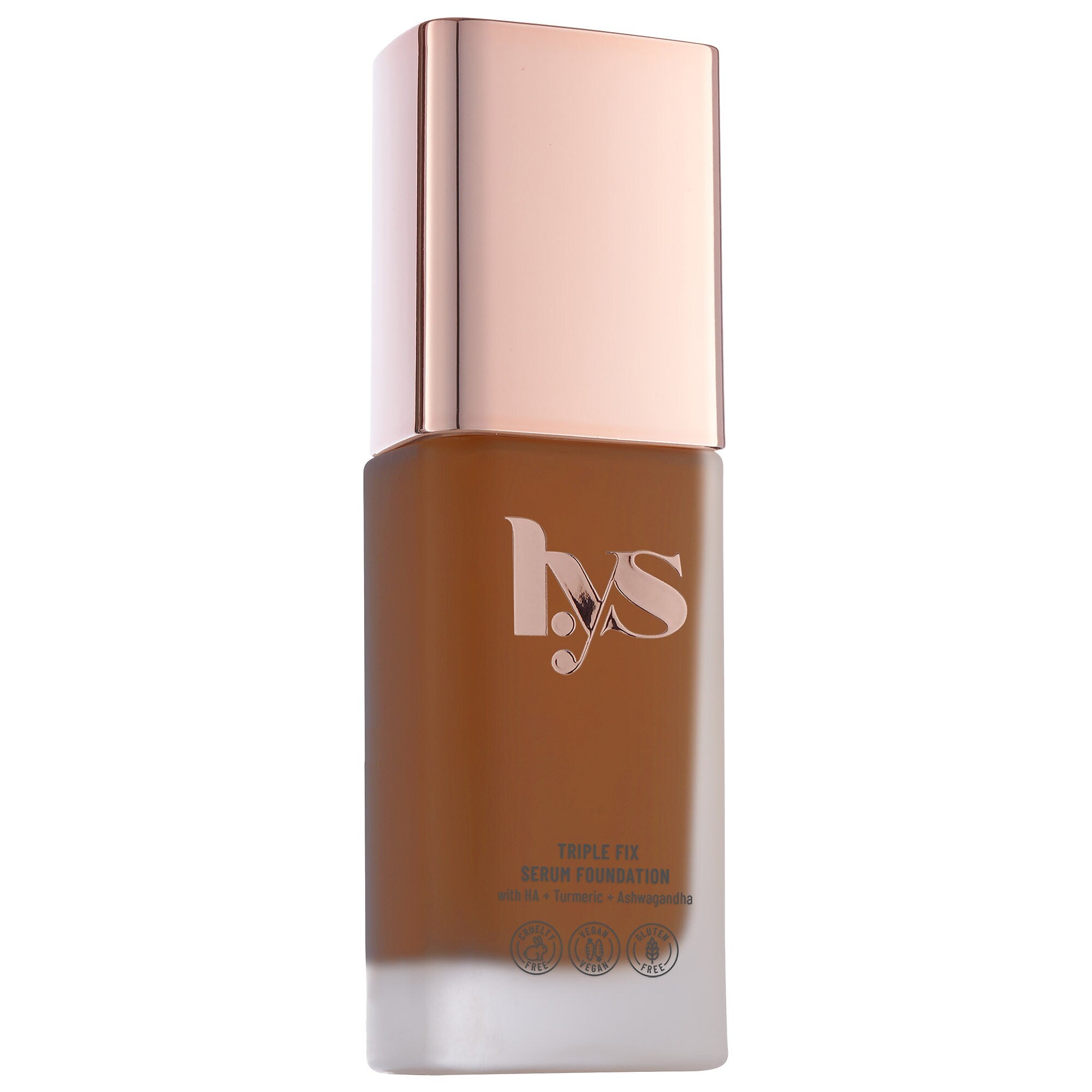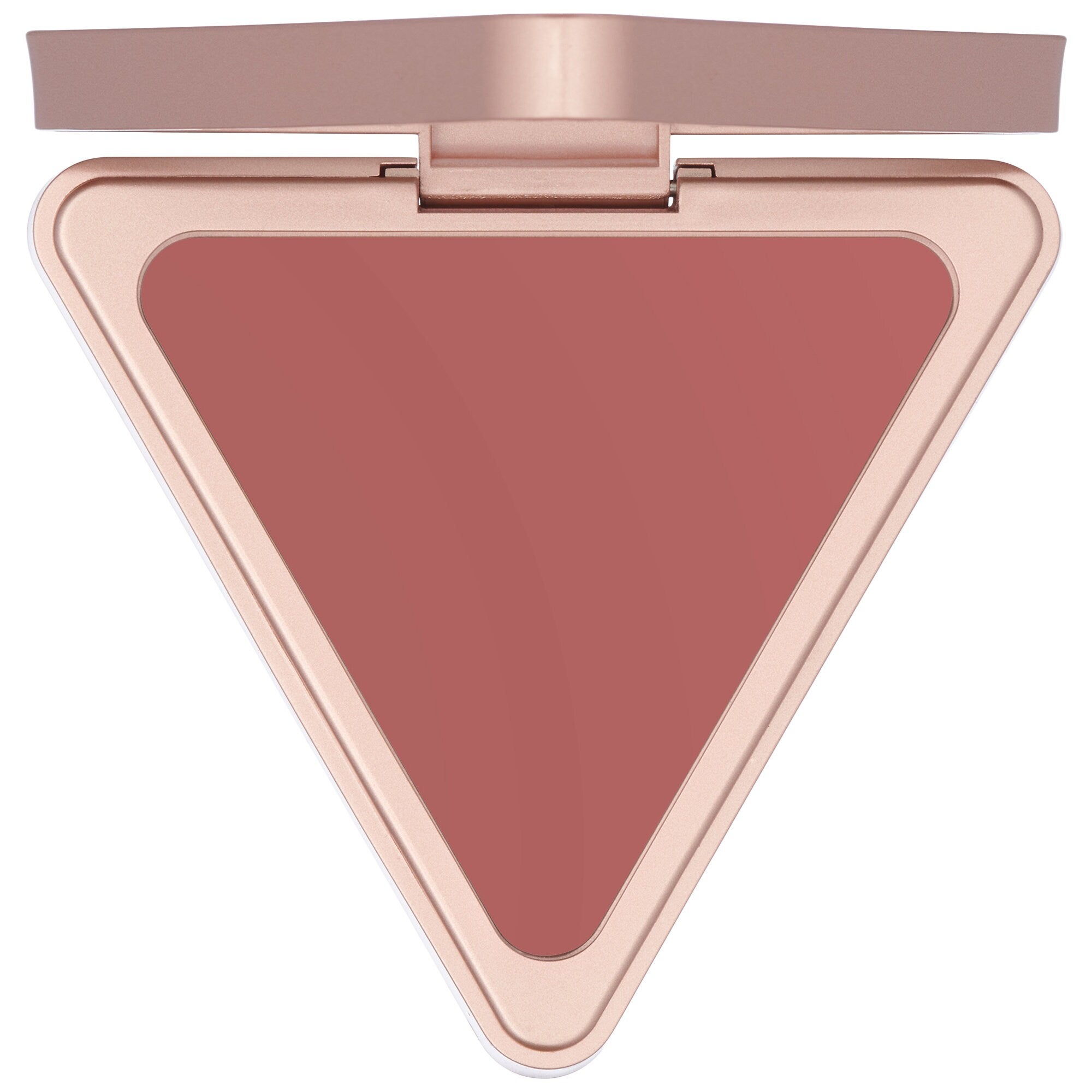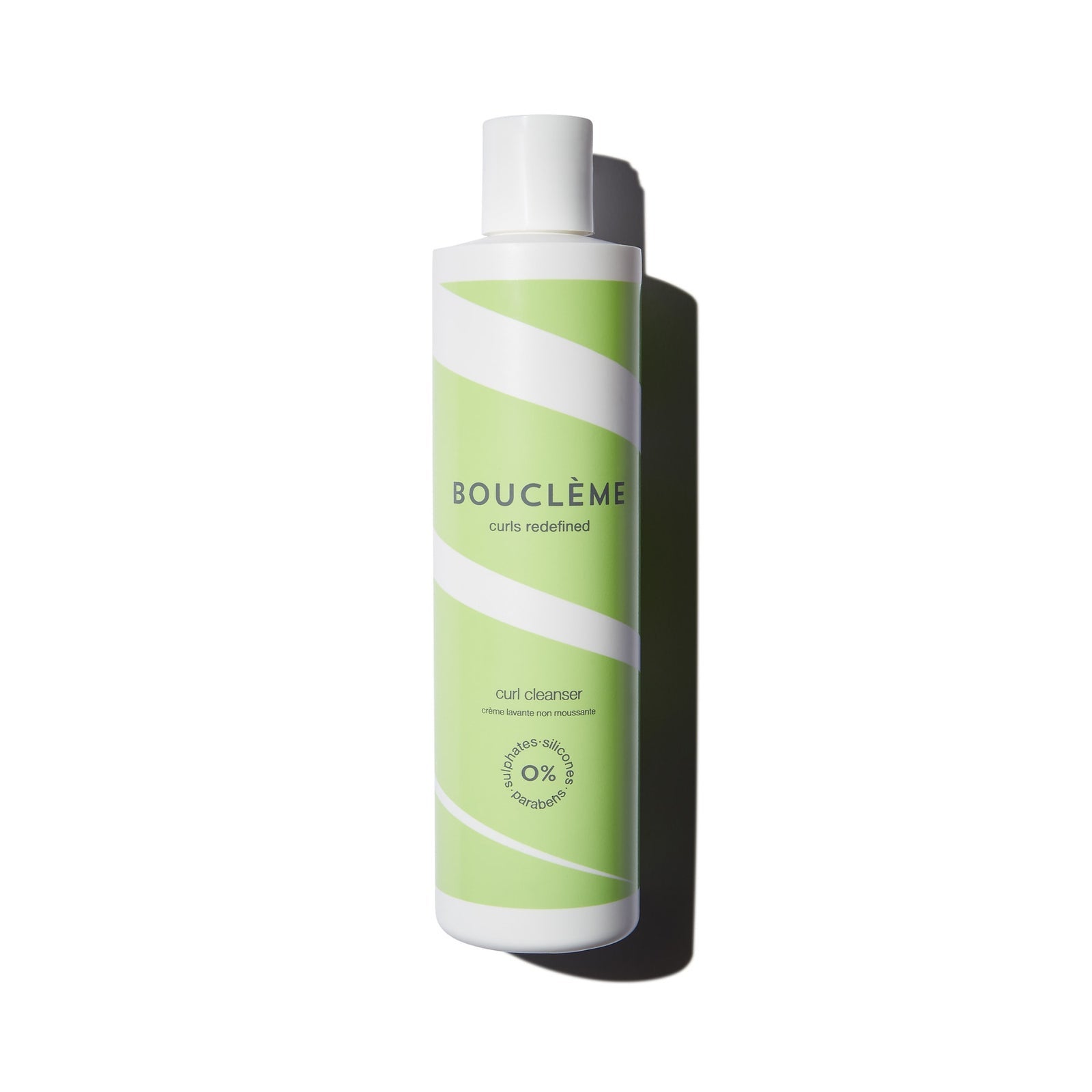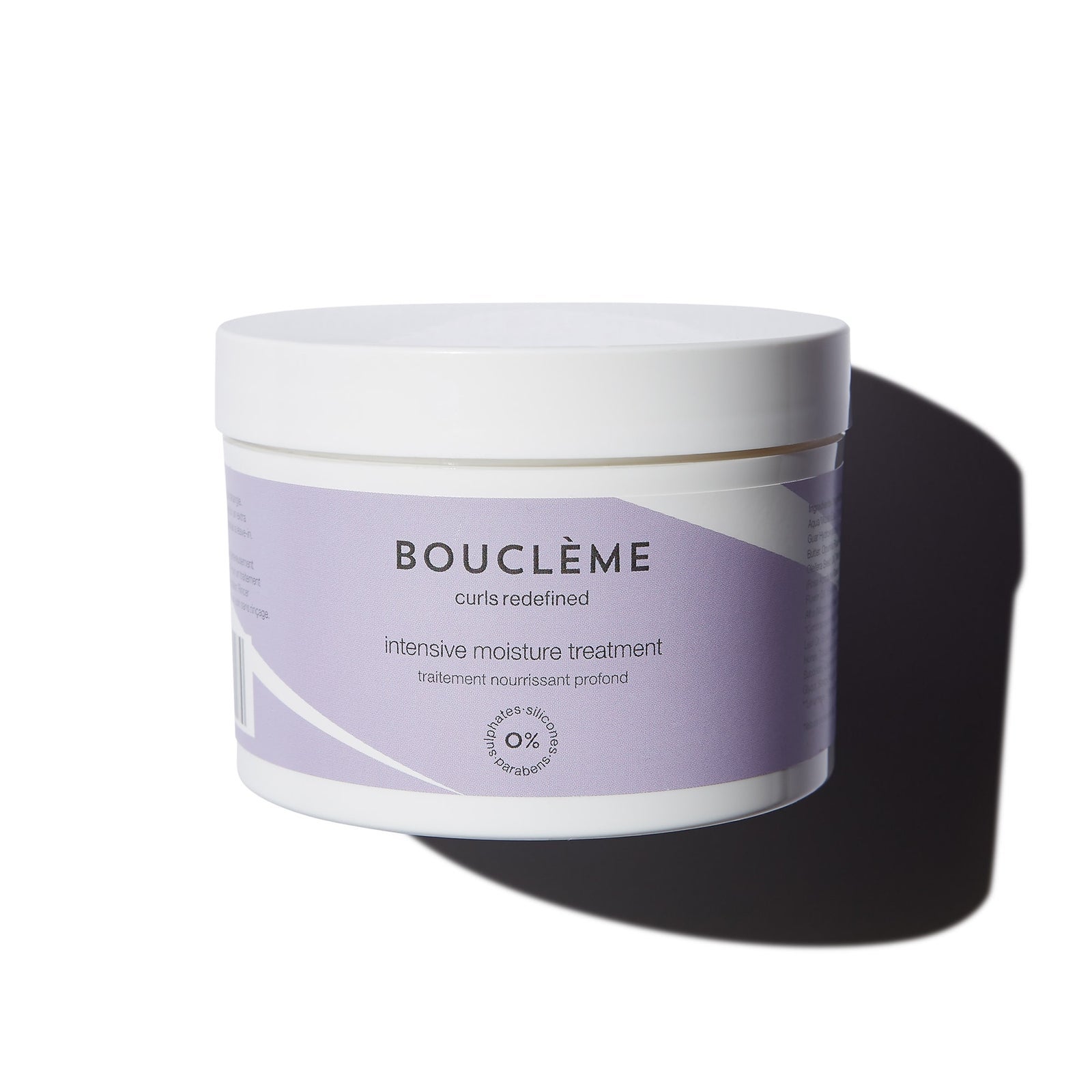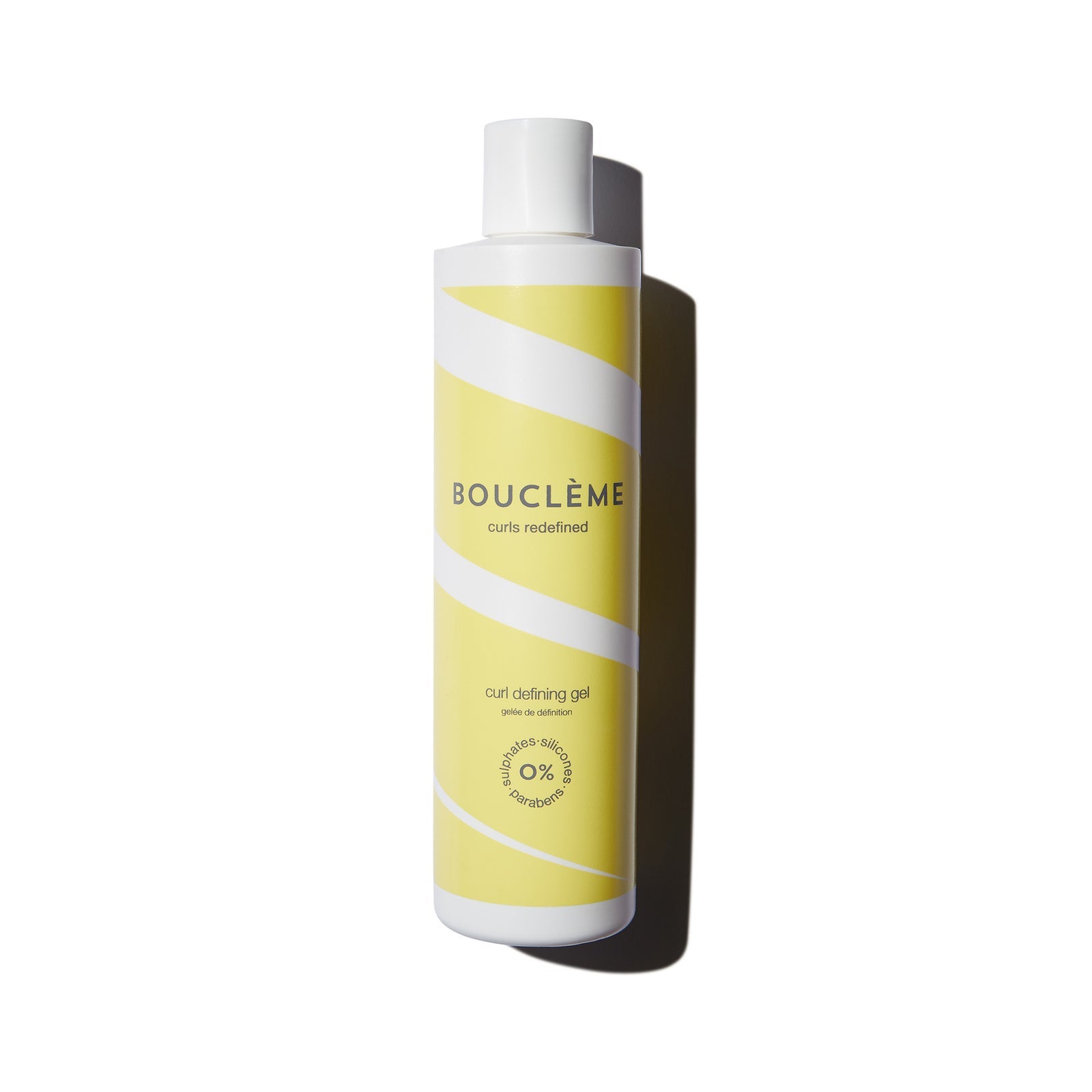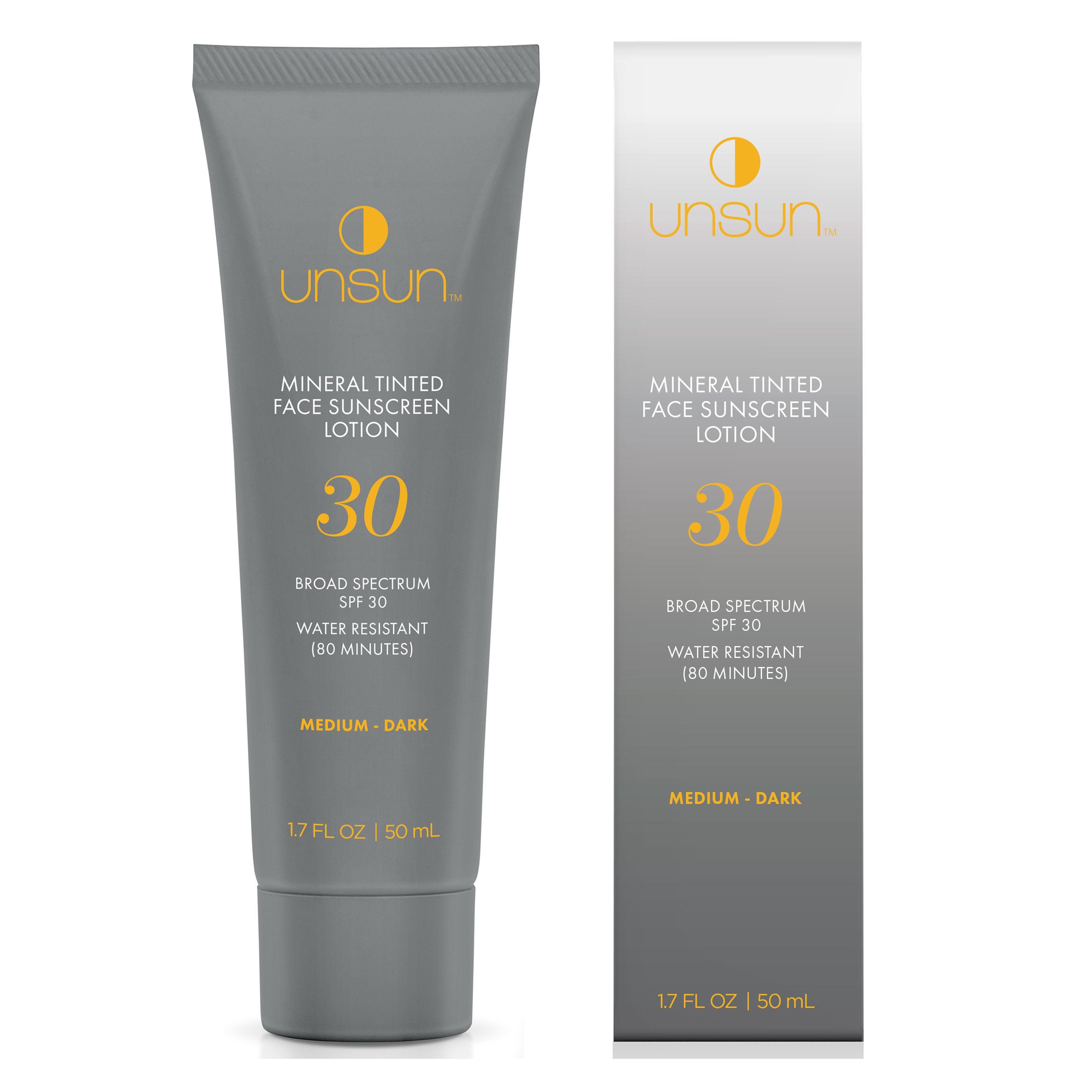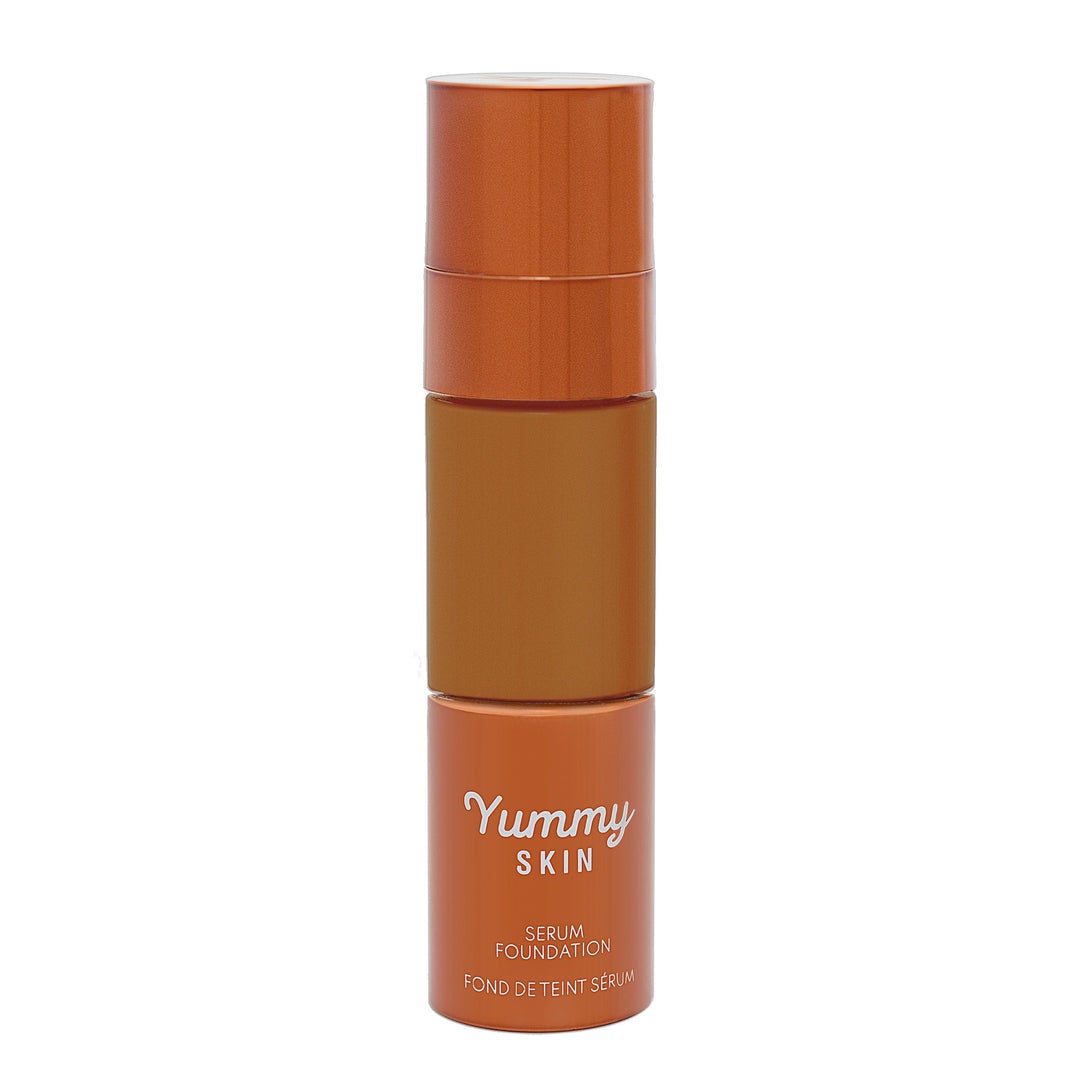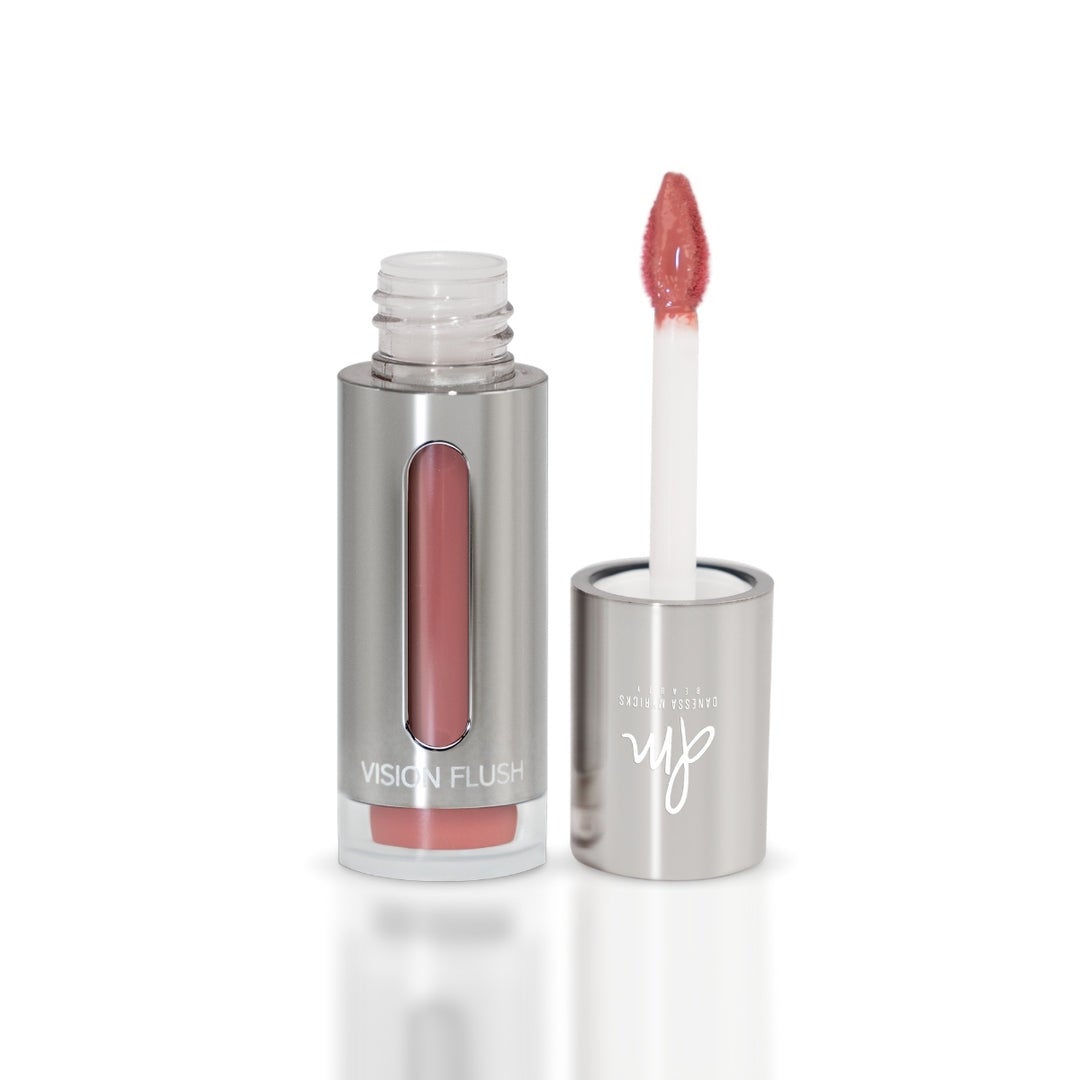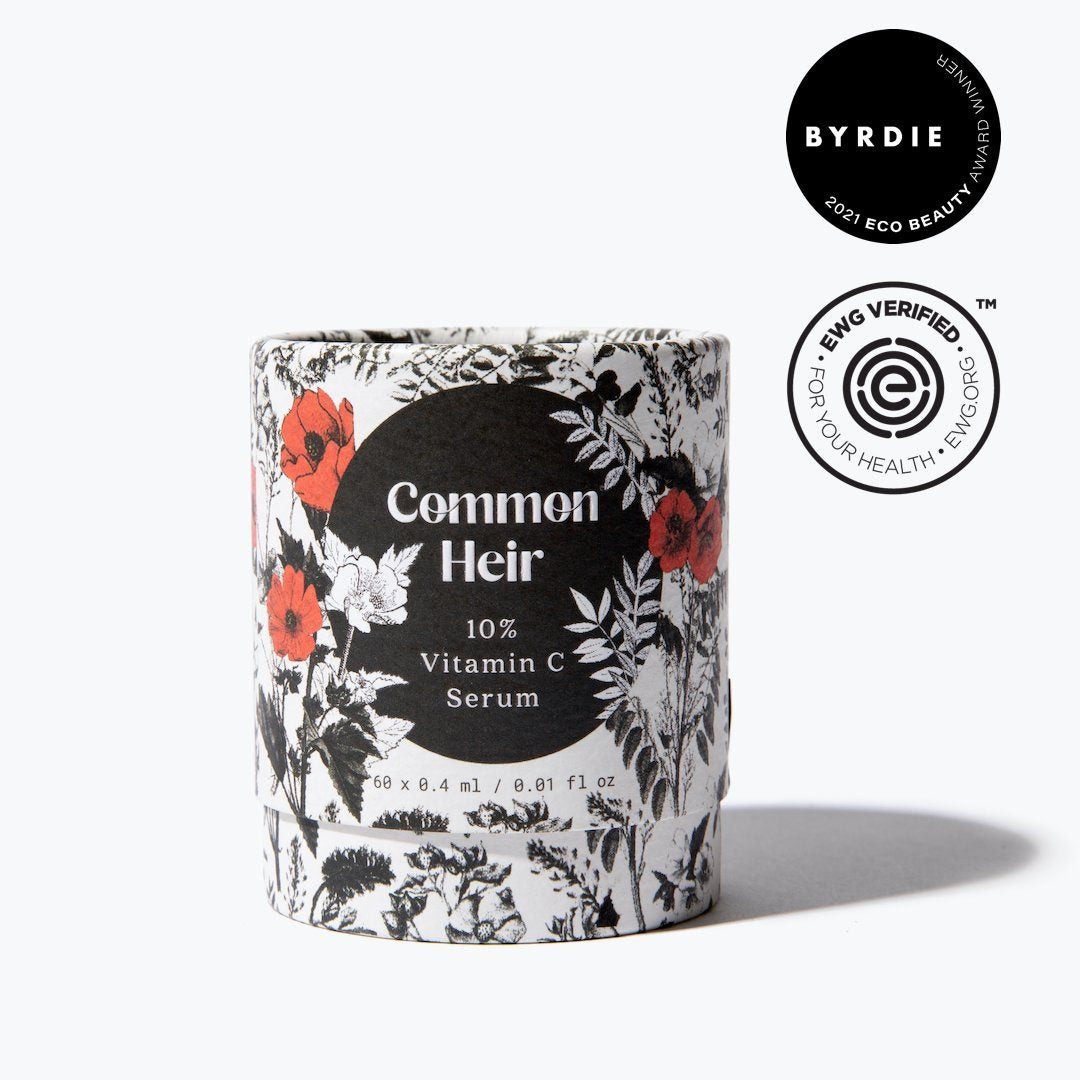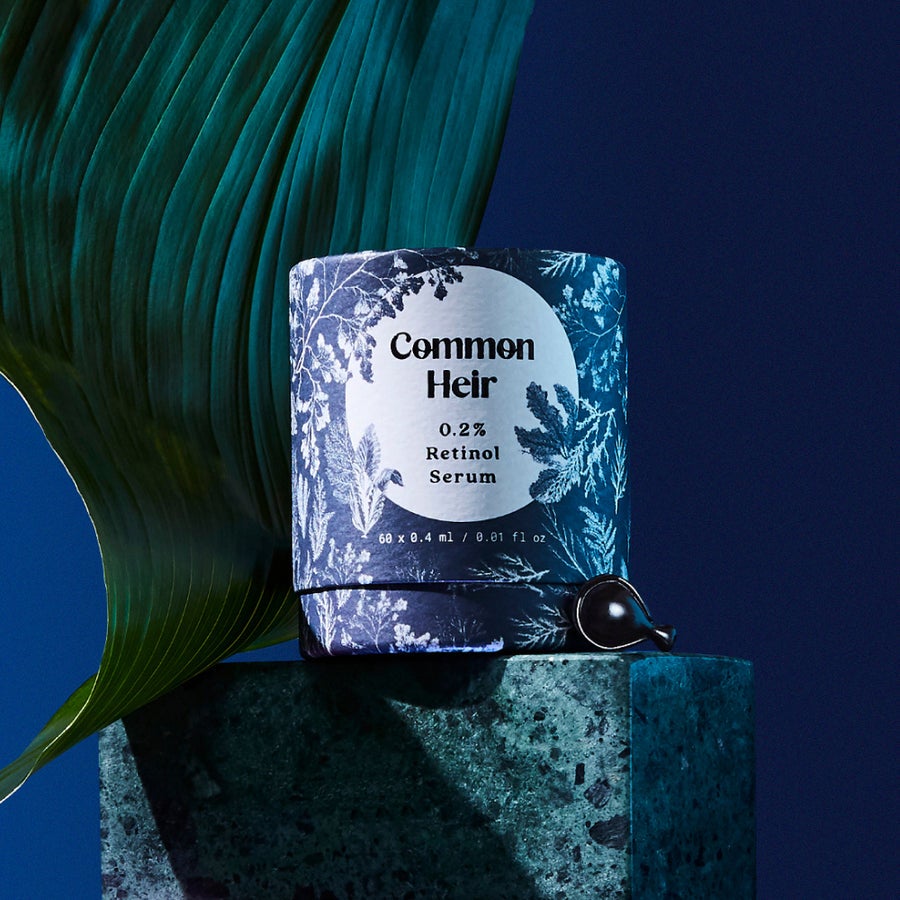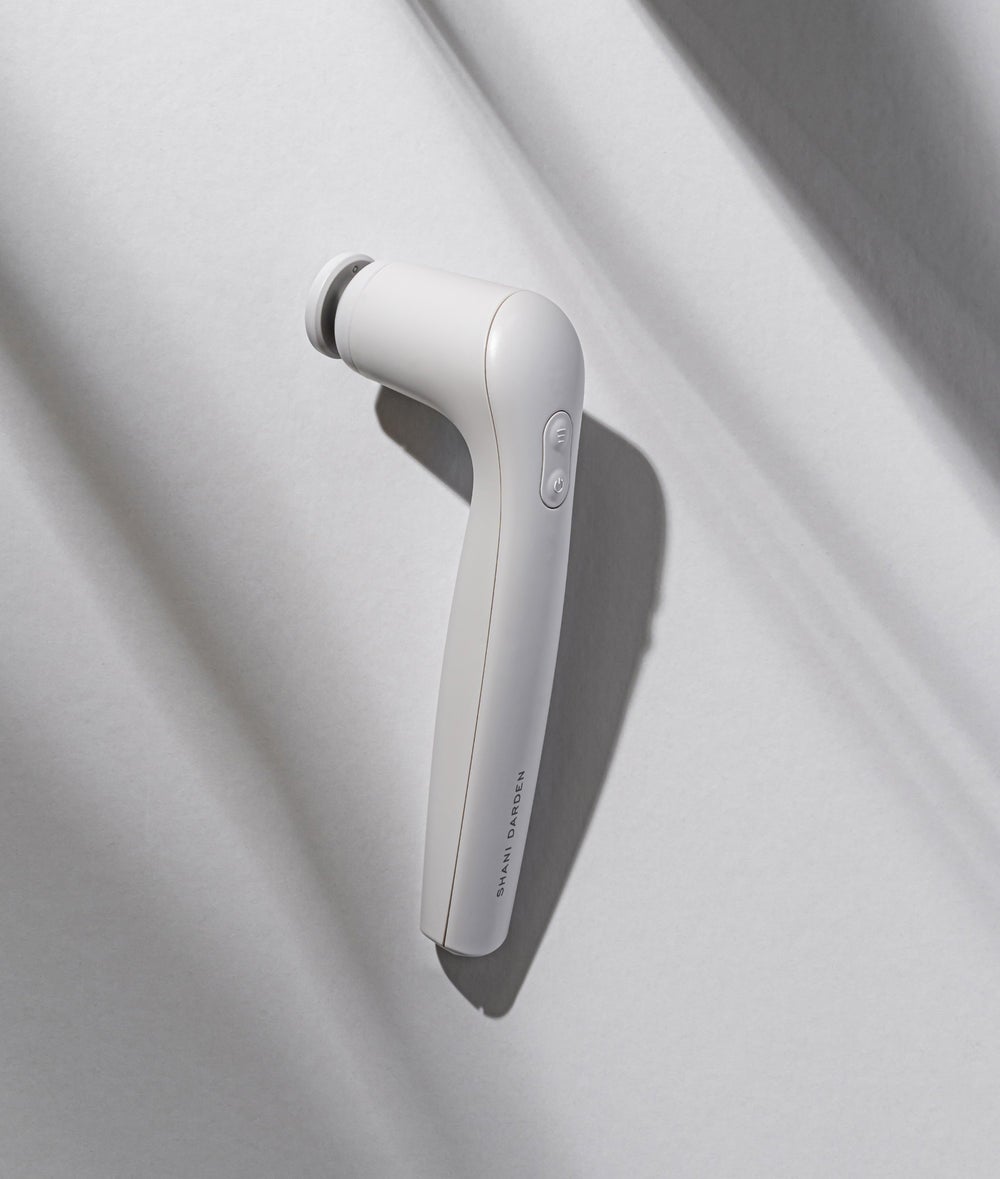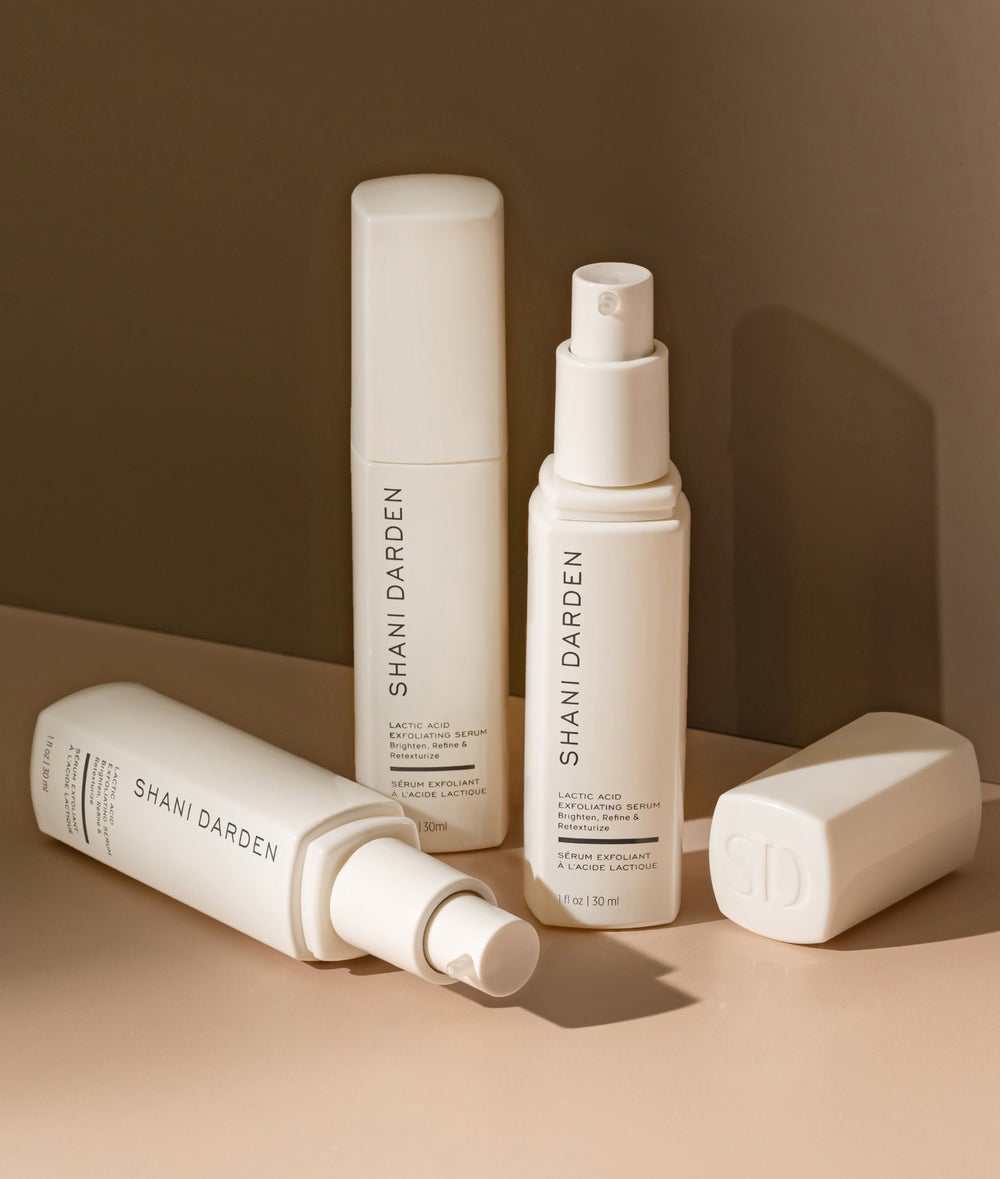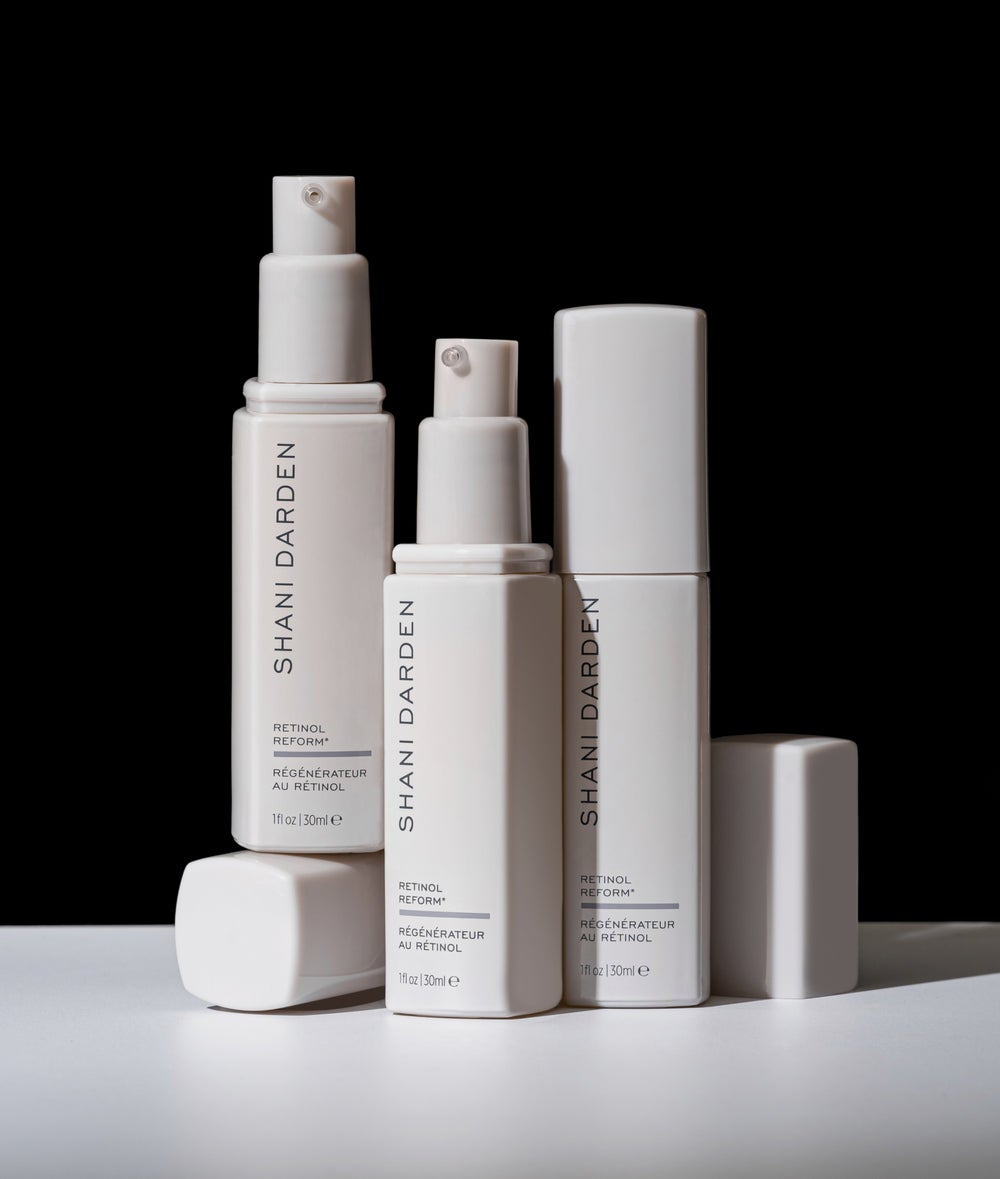The Future Of Luxury Beauty Is Black
Photographed by Caroline Tompkins.
The weird thing about “luxury beauty” is that it is ultra hard to define — the parameters of “luxury” are somewhat tenuous. Is it the packaging? Is it the ingredients? Is it the placement on the shelf at the retailers? Is it the price point? (Well, we know it’s almost always the price point.) For the longest time, the common denominator in what defined luxury beauty, was an overwhelming degree of whiteness. From the founders to the shade ranges, luxury beauty products felt like they were made for and by white people and white people only. And it wasn’t as if Black and non-white founders didn’t exist, they were just relegated to drugstore products — seeing a product for and by a Black person on a shelf at Saks Fifth Avenue felt unheard of. Black people are and always have been the backbone of the beauty industry that for years felt determined to fail them over and over again, despite Black people spending more than twice on beauty products than non-Black people.
AdvertisementADVERTISEMENT
But there has been a clear shift — every day it feels like I get an email regarding a new brand launching, founded by a white person, that’s not trying to be luxury. They’re gearing towards Gen-Z with the pastels and the lowercase typing and the cutesy packaging, while the new Black-owned beauty brands feel and look… expensive. Especially given the rise of #luxuryblackgirltiktok showing off young Black women thriving and spending their hard-earned coin on nice-ass things, the transition has become very clear: The future of luxury beauty is in Black people.
When I mention that fact to entrepreneurs who aren’t in the beauty industry, I always say “Do people not like money?” The fact it took a quarantine and yet another Black man being murdered on an international stage to really shine a spotlight on Black-owned businesses is abysmal, and frankly, embarrassing. Every single source interviewed for this story attributes the rise of interest and sales to June 2020, George Floyd, and the Black Lives Matter movement taking hold, leading to initiatives and measures like Sharon Chuter's Pull Up For Change. And it shouldn’t have been that way — but that’s unfortunately, the nature of the beast.
"The very stark reality that Black-owned beauty brands in premium beauty retail were few and far between had been bubbling away in the background for years, and it seemed that some retailers were already making strides to change this," Maeva Heim of BREAD Beauty Supply explains. "It also felt like this very ‘insurgent,' consumer sentiment was starting to pick up pace. Consumers were becoming more aware, and more demanding, of both brands and retailers to do better on all fronts when it came to diversity and inclusion. All of this, coupled with Covid lockdowns, and the resurgence of the Black Lives Matters movement really put a gigantic magnifying glass on the issue, and seemed to push everyone in the beauty ecosystem to move towards progress at a much more rapid rate."
AdvertisementADVERTISEMENT
When I think of “luxury beauty," I think first, “inaccessible.” The most interesting thing about the rise of Black luxury beauty is that finally, Black women and Black people are setting a very public boundary. It’s very “you can’t sit with us” energy, and I love it — because for so long, we’ve watched non-white people take and take and assume comfort from us while going out of their way to never reciprocate. Inaccessibility at arms' length, if you will — we’re not for everyone, not in the way some of these new “all-inclusive” brands have to be, nor do we want to be. Black brand founders are just making good, quality products and reaping the rewards and the benefits. But even they feel the shift in the culture.
Refinery29 spoke to 11 Black female beauty brand founders on how they define the concept of Black luxury beauty themselves, their experiences with retailers, and what they hope the future of luxury Black beauty looks like.
Rachel James, Pear Nova
What do you think defines "Luxury Black Beauty"?
To me, luxury Black beauty cannot be defined, in part because it’s forever evolving. It’s like trying to define a frequency or vibration; you just can’t. It can be experienced but not defined. And the experience is whatever makes you feel luxurious. And whatever makes you feel beautiful. If it has that magic and a Black person creates it, it's luxury Black beauty to me.
AdvertisementADVERTISEMENT
What has your experience been like as a Black founder in the luxury space?
It’s been authentic, enlightening, and overwhelmingly positive. Pear Nova has stepped into a void in the nail, beauty, and fashion worlds. We are bridging the gap that is the lack of representation, and we get to collaborate with some amazing creatives who are on that same mission. Our team is predominantly Black and female. And we’re a family. We get to be ourselves and be celebrated.
What do you envision as the future of Black luxury beauty, and what will its legacy be?
I see more. I see us in every aspect of beauty, health, wellness, and fashion. I see our brands finally being recognized for setting the standards for all races, and I see all people enjoying Black luxury offerings. I see more growth, and I see more ownership. And I believe our legacy will be our undeniable and incomparable ability to create more.
Nyakio Grieco, nyakio beauty & Thirteen Lune
What do you think defines "Luxury Black Beauty"?
Luxury Black Beauty is steeped in authenticity, integrity, Black excellence, and rich founder stories. These powerful brands bring to life efficacious, non-toxic beauty and wellness products created for people of all skin tones and hair textures.
It is so thrilling to see brands created by people of color taking up more space on beauty shelves and further serving a consumer who has been underserved for far too long. By celebrating the beauty of inclusion we offer BIPOC consumers the opportunity to see themselves better reflected in beauty offerings.
AdvertisementADVERTISEMENT
What has your experience been like as a Black founder in the luxury space?
While I’ve loved being in the industry for 20 years, I have faced many challenges as a Black female beauty founder when it comes to access to capital and the many stops and starts it took to bring my founded skin-care brand to success. By co-founding thirteen lune, it gives us the opportunity to help other BIPOC founders get to success much faster.
What do you envision as the future of Black luxury beauty, and what will its legacy be?
At thirteen lune we are deeply committed to making the industry more equitable for Black owned and founded beauty brands. We adopt what we call our own 90/10 rule. 90% of brands that we carry are created by BIPOC founders who create beauty products for all. By bringing more BIPOC brands to shelf and success we are helping to build generational wealth through the lens of beauty. Our legacy will be inspiring the next generation of beauty founders and living out our mission of making the industry more inclusive.
Nancy Twine, Briogeo Hair Care
What do you think defines "Luxury Black Beauty"?
Luxury Black Beauty brands are thoughtfully curated from both a formulation and a brand DNA perspective. These brands have important stories to tell and they celebrate the beauty of diversity.
Exceptional Black beauty brands have existed long before the rise of the recent “Black-owned brands” movement. As more consumers have raised their voices in support of retailers carrying more Black-owned brands, there’s been a long overdue uptick in retailers prioritizing the diversification of their brand offerings.
AdvertisementADVERTISEMENT
What has your experience been like as a Black founder in the luxury space?
As a Black founder, I feel fortunate to have been supported throughout my entrepreneurial journey, which has helped me achieve the success that I have today. To help pay it forward, I dedicate time to mentoring other Black and BIPOC beauty brand founders to support the continued growth and success of Black entrepreneurs and Black businesses.
What do you envision as the future of Black luxury beauty, and what will its legacy be?
Black luxury beauty will continue to grow and be a focus in the retail space as more Black entrepreneurs are feeling encouraged by what’s possible for their brands. Additionally, there are more opportunities to sell into more retailers, coupled with the new support mechanisms these retailers have rolled out to market to bring visibility to these brands. Over time, this continued progressive change will bring more visibility and a more diverse shopping experience to the retail landscape.
Brianna Arps, MOODEAUX
What do you think defines "Luxury Black Beauty"?
I think luxury defines more than just a price tag. I don't think luxury is just, "Let's price this product at a hundred dollars and because it's over a certain threshold, it's luxury." For me, and how we approach luxury at Moodeaux is, it's all about a lifestyle change.
It's all about a lifestyle shift in the mindset: We want people to know that you're worthy of clean beauty that is good for you, that smells great, that lasts, that solves your pain points and that reminds you that, again, you're worth it. That at the core is what we're doing and I think when we talk about luxury, that's our goal with it: Reminding our audience that they're worthy of products that are good for them. And again, that solve their pain points, et cetera. So I don't think it's necessarily a price point thing. I definitely think it's a mindset.
AdvertisementADVERTISEMENT
Obviously there's a component like the quality of ingredients — we use quality ingredients in all of our formulations. I mean, we only have one that's on the market right now, but we are ideating outside of this particular one and we do want the product to be quality. We do spend a lot of time sourcing and working with manufacturers that adhere to our standards and what our definitions of luxury are, so that's definitely important. But I think what people often don't talk about is the mindset shift that has to occur between what's a non-luxury product and what's a luxury product, in my opinion, at least.
What has your experience been like as a Black founder in the luxury space?
Three months after launch, we got our first big interest push from a retailer. It's a national beauty retailer and it's such a dream obviously. While it's nice that three months in we can have this [kind of] opportunity, but just in general, it's tricky. It's tricky to navigate and to discuss these waters when you don't have a blueprint.
When you can't just walk into, say a Sephora, and see a brand that you know and love and follow the founder on social media, you plan out your own trajectory on how to make that goal of being in a retail a reality for you. My overarching experience with retail is just knowing that I want to be in it and then making sure that we are just extremely visible so that people wake up to the fact that we too belong on shelves and there's a market for our products from a growing list of individuals, people, and brands who are looking to support us.
AdvertisementADVERTISEMENT
What do you envision as the future of Black luxury beauty, and what will its legacy be?
This is even outside of luxury beauty, but in general, I really hope that Black innovators really start getting the praise and their flowers now. We are the innovators, we are the trendsetters and it isn't enough to recognize our achievements or recognize our visionary mindsets after the fact. While we're talking about it now, let's start positioning ourselves in these places where we belong.
You need to continue to pour into people who are now seeing their idols have their dreams actualized. How about we ask the younger generations and future generations how they need support? I don't think it's enough to just stop there. Okay, great, we give you your flowers, [but now] it's, how do we continue to grow our garden? How do we continue to water and seed the next rise of Black luxury innovators? I think we need to start having more forward thinking conversations.
Maeva Heim, BREAD Beauty Supply
What do you think defines "Luxury Black Beauty"?
To me, luxury Black Beauty is just beauty. But it’s beauty that takes the desires, needs, wants, and unique needs of Black consumers into account first and foremost.
What has your experience been like as a Black founder in the luxury space?
It is a true privilege and honor that I’m grateful for every day, but it comes with its challenges. I think the challenge that all founders in this space have, or will come up against at some point, is not allowing yourself or your brand to be put in a box.
AdvertisementADVERTISEMENT
What do you envision as the future of Black luxury beauty, and what will its legacy be?
To me, the future of Black luxury beauty doesn’t have a name. I want Black-owned luxury bands to just become synonymous with luxury beauty.
Tisha Thompson, LYS Beauty
What do you think defines "Luxury Black Beauty"?
Luxury Black beauty is more about how a product makes you feel and less about the product itself. I look at my makeup and skin-care routine as my "me time" every day, so the key is finding products that play into your senses, emphasize your natural beauty, and leave your skin looking and feeling amazing. To me, luxury also speaks to what's in the products, so ingredients are key. I want to treat my skin to premium, good-for-the-skin ingredients, and I think that's a luxury in itself.
What has your experience been like as a Black founder in the luxury space?
As a brand anchored in providing self-love and confidence, it's been rewarding joining this luxury space as a Black founder. I'm so inspired by the current self-care movement, and it's particularly special seeing Black women taking time to actually treat themselves. For the first time, we're seeing people prioritize their bodies, morning routines, mediation, mental health, beauty regimens, and it's about time! My hope with LYS is to continue highlighting the positive impact that proper self-care can have both on the relationship with yourself and others.
AdvertisementADVERTISEMENT
What do you envision as the future of Black luxury beauty, and what will its legacy be?
Black people are very integral to the beauty industry, taking up a large percentage of the consumer-base and benchmarking what's hot or not; and luxury retailers are finally waking up. The industry is long-overdue for a makeover, and as conversations of inclusion, representation, and diversity are highlighted in society, the more retailers will be inclined to fill those white spaces. Thanks to social media, it's never been easier to hear directly from consumers, and beauty and makeup lovers have made their voices heard calling for more products and brands that are suitable for Black people to get a fair chance. As we've seen in the past, there's still a lack of opportunity and resources for Black brands, so this call-to-action has been the leading driving force behind prompting change.
The future of Black luxury is more brands and products that speak to previously underrepresented and overlooked demographics. The concept of luxury has been gatekept, and Black consumers are making it known that we, too, deserve premium products that help us look and feel our best. The lasting impact is future generations of Black people that never have to question their belonging in this space — a complete 180 from how the industry has historically been.
Michele Scott-Lynch, Bouclème
What do you think defines "Luxury Black Beauty"?
For me, luxury Black beauty starts with innovative branding, a curation of thoughtful product collections with high quality ingredients and premium packaging and sold in a space where Black consumers are valued and appreciated. A brand like Pat McGrath epitomizes this for me.
AdvertisementADVERTISEMENT
What has your experience been like as a Black founder in the luxury space?
My experience as a Black founder in the luxury beauty space has been challenging and continues to be challenging. Common experiences Black founders can face include struggling to win space with retailers to having to try much harder to get editors to notice your brand and take it seriously. I had never worked in beauty before so I had zero connections, but was fortunate enough to have a PR team that believed in me and our product range. I was lucky to be able to win the support of Imelda Burke, founder of Being Content, a pioneer in the green beauty space who never hesitated to take Bouclème on from launch and still supports us now. None of our current success would have been possible without the ability to have our own presence on the internet and creating products that catered to a demographic that had been largely ignored by the beauty industry. I can’t imagine trying to launch a brand having to solely rely on third party retailers, it would have been nearly impossible. The internet has been a game changer for new indie brands to connect with their audiences directly which for me meant being able to speak directly to curly consumers about our shared hair experiences.
What do you envision as the future of Black luxury beauty, and what will its legacy be?
That’s really hard to say as support for Black luxury beauty is in its infancy. There is no shortage of innovation within this category where founders draw on trusted ingredients passed from generation to generation to create exciting and effective formulations steeped in history. I hope that Black owned luxury beauty brands are given a level playing field where they can be seen, supported and can thrive. I also would love to see that Black owned luxury beauty brands receive the same level of financial support from investors so potential founders can continue create incredible brands/products in this category.
AdvertisementADVERTISEMENT
Katonya Breaux, Unsun Cosmetics
What do you think defines "Luxury Black Beauty"?
I believe that anything considered luxury is based on its commitment to provide the best of the best. With beauty, that's ingredients. We deserve to all have luxury ingredients in our beauty products, not just pretty packaging. So, I'll always associate luxury beauty with top-tier ingredients.
What has your experience been like as a Black founder in the luxury space?
My experience has been interesting. I have some retailers that seem to be very interested in our success and others who may just be filling a quota and just letting you flounder with no efforts to help you succeed in a market that's new to you. It depends on management, but thankfully, a few of our retailers have gone above and beyond to uplift the brand.
What do you envision as the future of Black luxury beauty, and what will its legacy be?
I envision the future of luxury Black beauty as being so widespread that the product will become the focus and not the ethnicity of its founder. It's necessary now because they have not historically given Black brands the opportunity to sit side by side with the long-established brands of other races. This is changing and I believe (and hope) it will only continue to.
I believe the rise in luxury retailers carrying Black brands has to do with a collective voice. The voices came together and said, "We want more diversity and inclusivity," and the retailers heard. There is a new generation of leadership in many of these establishments, and many are willing to heed the call of inclusivity. It shows what a community can do when the voices come together, when communities come together, things can and often do change, there is clear evidence of this in the beauty space.
AdvertisementADVERTISEMENT
Danessa Myricks, Danessa Myricks Beauty
What do you think defines "Luxury Black Beauty"?
The definition of luxury is the state of great comfort and extravagant living. Luxury in beauty should be exactly that; elevated ideas, premium ingredients, proven efficacy and of course it should be aspirational. It’s the ultimate indulgence in something that not only makes you look good but also feel good. The storytelling behind it coupled with the artisans that created it are all part of what’s makes it desirable.
What has your experience been like as a Black founder in the luxury space?
My experience as a Black founder has been similar to so many people’s experiences as entrepreneurs looking to bring their ideas to the world, an uphill battle. It is also layered with the additional roadblocks that come with being a Black female entrepreneur. Unfortunately, there are still a collection of ‘isms” that continue to create immediate closed doors, lack of respect and recognition for the products being created, limited opportunity for inclusion where opportunities exist and lack of financing options to name a few. However, here I am: An independent, self-funded, female, Black-owned beauty brand, sold in major retailers around the world supported by a huge community of beauty lovers excited to see me win. I have not and will not allow present circumstances to quell my desire to participate, to tell my story and create. I won’t allow it to stop me from dreaming big. I have a lot to share and continue to be excited about the possibilities of the future.
AdvertisementADVERTISEMENT
What do you envision as the future of Black luxury beauty, and what will its legacy be?
As with all things, the future is limitless, it is what we create it to be. Innovation, invention, imagination, creativity & excellence in artistry are core to our cultural heritage. It has been a foundational cornerstone to what we see artistically across all creative platforms non-exclusive to beauty. Our gifts and talents have made vast contributions to the Luxury beauty landscape, our art is highly consumable across the diaspora — and with more visibility and awareness of our cultural hidden gems, this consumption can only expand.
It is undeniable at this point that a movement towards a cultural shift has been created that cannot be ignored. Retailers, regardless of whether or not it is part of their corporate, cultural DNA, or whether their hands have been forced by this resounding call for inclusivity, understand that they cannot just performatively participate in this momentous shift. They are being held accountable to actively integrate this message of inclusion as part of their overall business strategy and philosophy long-term.
In my ultimate utopia, the difference would be that they will garner the presence and respect they deserve on a mainstream level and its artistic power will be celebrated along with the hands, hearts, and minds of those who authentically created it. The term “Legacy brands” will represent an extended landscape, featuring a plethora of long deserving Black founder led brands. When I launched Danessa Myricks Beauty, the dream was to create a line of innovative products that celebrate untold stories in beauty and create a legacy that generations to come can be inspired by.
AdvertisementADVERTISEMENT
Angela Ubias, Co-Founder, Common Heir
What do you think defines "Luxury Black Beauty"?
To me, [Black luxury beauty is] luxury that is still aspirational, but in a way that is not so focused on Eurocentric beauty standards. There is a heart to it now, and there's a soul to it now. It's that ability to bring through these love notes, and formulas, or packaging design — These heritage ingredients to be able to bring those love notes through, to your community, to your friends, to your family. To me, that's really what this definition of luxury is.
What has your experience been like as a Black founder in the luxury space?
Something that became really apparent to me was, if I am going to do this and if I want to do what's best for this brand and for the business, it is important for me to be front-facing. It is important to make myself available in that way, because representation does matter.
What do you envision as the future of Black luxury beauty, and what will its legacy be?
I think the legacy that's left behind is from a formulation, and a nerdy product development level. [We're creating] actually inclusive products, and products that are crafted with melanin in mind, in a very intentional way that we don't see commonly right now. To have a brand like us, that's doing it, now you have other brands that are starting to do these things. But I think that's what the turning point is: These products are now going to be melanin-safe. They're now going to start conducting clinicals correctly, on people with skin tones that are beyond a three on the Fitzpatrick scale. It's all of those things that are going to make this category continue to thrive, and be inclusive in a very real way.
AdvertisementADVERTISEMENT
Shani Darden, Shani Darden Skin Care
What do you think defines "Luxury Black Beauty"?
More than ever, I think people are really looking for maximum benefits and value out of their skin-care products. Consumers are far more educated in skin care than ever before. To be honest, I never set out to create a luxury Black beauty brand. There have always been Black beauty products and white beauty products, but I wanted to create an inclusive line that is for everyone regardless of race or gender. I made my brand for skin. Everything is about skin types and everyone’s skin is different. Learning how to take care of your skin and all of the right products that your skin specifically needs is worth the time it takes. I know from personal experience what an effect it has on your confidence when you’re experiencing skin issues. My hope is to offer solutions and easy-to-use skin care that results in your most gorgeous, glowing skin.
What has your experience been like as a Black founder in the luxury space?
Being a Black female founder in LA has been a totally different experience for me than being bi-racial in a small town in upstate NY. In LA, everyone’s a mix of something so the conversation was rarely around race, but in New York it was a whole different story so I sort of just flew under the radar here and lived my life and built my brand without it being the main point of conversation.
When I started out as an esthetician, I was working for a dermatologist and saw all of the amazing transformative effects of retinol, but I couldn’t find a retinol product on the market that has all of the benefits of a prescription retinol product with minimal irritation. I decided to develop my own formula, Retinol Reform, that is incredibly effective but without the harsh side effects. It has become the go-to serum my clients swear by because it’s clinically proven to address multiple anti-aging concerns from the appearance of fine lines and wrinkles, to uneven texture, dullness and even loss of firmness. However, I started out small, packaging my first orders on my bed with my husband and our friend. I’ve been fortunate enough to grow from there, and I hope my experience not only helps inspire others to follow their dreams, but helps to pave the way for more visibility and more opportunities for other Black beauty founders.
What do you envision as the future of Black luxury beauty, and what will its legacy be?
I’m hoping that seeing Black women build brands will help push all the statistics in the other direction. I’m hoping that any success that comes my way will help pave a way for other Black female founders to get the attention they deserve from banks, investors and retailers. These partnerships are so critical to the success of a small business and that’s really where we need to equalize the playing field. My hope is that Black beauty brands continue to gain traction and the attention they deserve.
At Refinery29, we’re here to help you navigate this overwhelming world of stuff. All of our market picks are independently selected and curated by the editorial team. If you buy something we link to on our site, Refinery29 may earn commission.
AdvertisementADVERTISEMENT







